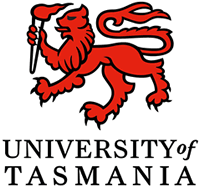About the research project
There is emerging evidence for motor biomarkers in dementia risk assessments. For example slow gait speed at preferred speed is associated with future risk of dementia. However, the association between other motor functions such as dual-task walking, fast pace walking, frailty and hand function with cognition, is not yet fully understood. Such simple and inexpensive tests would be extremely useful if able to help predict who might develop dementia.
This cross-sectional observational study will include participants from the ISLAND Clinic, which is the Tasmanian Dementia and Cognition Clinic located in the Clinical Research Facility of UTAS, Hobart. The ISLAND Clinic was established by the Wicking Dementia Research and Education Centre in February 2021.
This project will examine the utility and underling brain pathways of motor function in relation to a dementia risk assessment.
Specific research questions include:
- Do gait measures (under fast pace or dual-task) and measures of frailty differentiate between cognitively normal, mild cognitive impairment and dementia (and sub-typing – amnestic vs non-amnestic)
- Do hand measures and frailty scores improve the predictive accuracy of gait measures in cognitive differential diagnosis
- Are gait and frailty measures associated with hand measures?
- What are the underlying brain pathways (vascular vs brain atrophy) associated with the above gait measures?
Funding
Applicants will be considered for a Research Training Program (RTP) scholarship or Tasmania Graduate Research Scholarship (TGRS) which, if successful, provides:
- a living allowance stipend of $28,597 per annum (2021 rate, indexed annually) for 3.5 years
- a relocation allowance of up to $2,000
- a tuition fees offset covering the cost of tuition fees for up to four years (domestic applicants only)
If successful, international applicants will receive a University of Tasmania Fees Offset for up to four years.
As part of the application process you may indicate if you do not wish to be considered for scholarship funding.
Eligibility
The project is open to domestic (Australian and New Zealand) and international applicants.
Applicants should review the Higher Degree by Research minimum entry requirements.
Selection Criteria
The project is competitively assessed and awarded. Selection is based on academic merit and suitability to the project as determined by the College.
Application process
After checking and ensuring that you meet the eligibility and selection criteria contact the project supervisor.

 Continue with Facebook
Continue with Facebook



